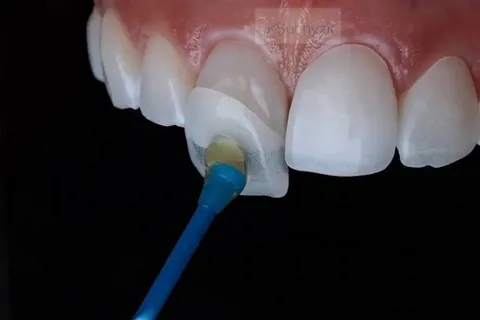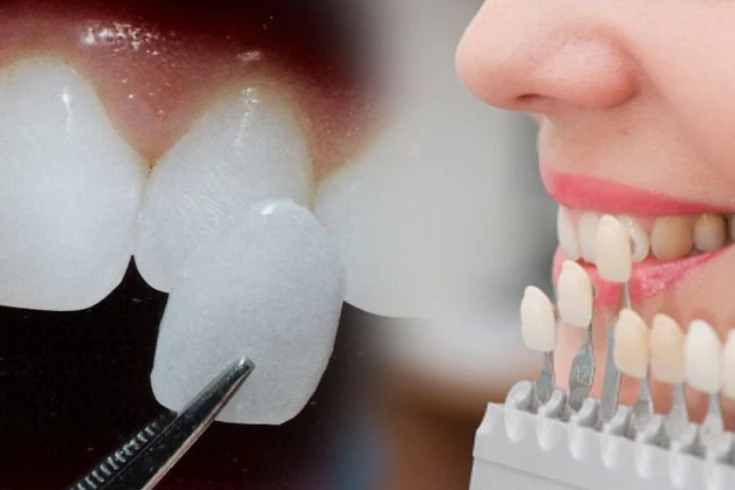Root canal treatment is one of the many ways to save a tooth from decay, infection, and trauma. While it’s considered a routine dental treatment, the cost of root canal treatment can be very high in Texas. The cost of a root canal depends on many factors, such as the Tooth’s location, the dental clinic’s location, and with and without dental insurance. This blog will review the root canal treatment cost in Texas, discuss how much you can expect to pay with and without insurance, and discuss other ways to make this procedure more affordable.
Key Highlights
- Cost Range: Root canal costs in Texas typically fall between $700 and $1,500 per Tooth.
- Molars: Expect to pay more for molars, as they often require more extensive work due to multiple canals.
- Insurance Impact: Depending on your plan, insurance can significantly reduce costs.
What is a Root Canal Treatment?
Root canal treatment is a dental procedure considered to repair and save a badly decayed or infected pulp- the soft inner tissue of a tooth. Under treatment, the dentist removes the infected or damaged pulp from inside the Tooth and cleans and disinfects the inner chamber before filling and sealing it to prevent further infection.
Infected pulp is caused by deep decay, repeated dental procedures on the Tooth, or a crack or trauma to a tooth. If left untreated, the disease will spread and may cause pain, abscesses, or even tooth loss. A root canal treatment helps relieve tooth pain and preserve the natural Tooth to enable full function.
The dentist places a dental crown or filling to restore the strength and appearance of the Tooth after the root canal treatment. Because of its not-so-pleasant reputation, modern root canal treatments are, in reality, no more uncomfortable than getting any other type of filling.
Why is Root Canal Treatment Necessary?
A root canal is a dental treatment that removes an infected or damaged pulp from inside a tooth and cleans and fixes it. The dentist will add a dental crown after the procedure is complete.
The dental crown are necessary as it protects the teeth from being infected. The root canal is one of the most sought-after procedures and generally one of the most effective for retaining a tooth that would probably otherwise need extracting. Failure to effectively eliminate an infection may result in other serious dental complications or systemic health issues.
Key Reasons to Get a Root Canal
The main purposes of a root canal are:
- Relief from pain: Pain is often severe when tooth pulp becomes infected or damaged. A root canal removes the infected tissue, relieving pain.
- It Protects Other Teeth: You save the Tooth and keep other teeth appropriately aligned to avoid further dental complications in the near or far future.
- Good Oral Health: You get rid of the infection and ensure the bacterial infection does not spread to other parts of the mouth, keeping dental health good.
- Prevent the loss of a tooth: If left untreated, an infected tooth will result in a severe infection. Severe infection may result in the tooth extraction.
Cost of Root Canal by Tooth Type
A root canal is an important dental procedure that is done specially to save your tooth from further decay or extraction. Though it is an important procedure, the question remains: how much does a root canal cost in Texas?
Understanding the cost of a root canal will help you manage your budget and choose an affordable option. Below are the root canal price or cost by tooth type:
Type of Tooth Cost
Front Tooth $700-$1500
Premolar Tooth $800-$1800
Molar Tooth $1000-$2500
Post Root Canal $500-$1500
Root Canal Treatment Cost in Major Texas Cities
The prices for root canal procedure vary a lot in Texas’s major cities. The cost of the root canal can be influenced by the location of the Tooth (molars are more expensive), whether the procedure is done by a general dentist or by an endodontist, and type of insurance coverage. Additional procedures, like crowns, influence the total cost.
Cost of Root Canal in Houston
The average cost of root canal treatment in Houston lies in the range from $800-$1,500 per Tooth. Such variation has been observed to occur because different cases call for a different level of difficulty and also vary in location for treatment.
Other variables that influence the root canal cost in Houston are: dentist experience, use of high technology and whether a general dentist or an endodontic specialist did it. It would also be essential to note that this is only the bare root canal charge; sometimes additional procedures such as a post or crown would increase this cost.
Cost of Root Canal in Dallas
You will be charged anywhere between $900 and $1,600 for a root canal in Dallas. The price will entirely depend on the positioning of your Tooth and the complications involved in the procedure. Furthermore, other influential price factors are the location of a dental office, the years of experience of a dentist, or the type of dental insurance that covers partial costs of treatment.
Cost of Root Canal in Austin
A root canal in Austin will cost between $850 and $1,400. However, the cost may depend on the kind of Tooth to be treated, the complexity involved in the treatment, or the available type of technology. Similarly, like in other cities, insurance and financing options determine the out-of-pocket cost.
Cost of Root Canal in San Antonio
In San Antonio, prices for root canal treatment generally range from $750 to $1,300. Of course, the cost would vary depending on the details of the procedure, the dentist’s charges, and other treatments involved.
However, insurance for dental work could considerably bring down the overall price, as most places offer payment plans or financing.
Cost of Root Canal with Insurance
The cost of a root canal is quite expensive. Naturally, the price is considerably lower when dental insurance covers a root canal treatment. Most dental insurance would cover at least part of significant procedures, though this again depends on the policy one has. The following will show the cost of root canal with insurance.
- Front Tooth (Incisor or Canine): With insurance, the cost of treating a front tooth is typically reduced to between $200 and $700.
- Premolar Tooth: Insurance often covers a portion of the cost, lowering the price to $300 – $900.
- Molar Tooth: The most expensive root canal cost with insurance lies between $500 and $1,200.
- Post-Procedure Crown: Crowns may also be partially covered by insurance, with patients paying between $300 and $1,000 out of pocket.
Factors That Affect Root Canal Treatment Cost
The cost to undergo root canal treatment may be highly variable due to many prevailing factors:
- Type of Tooth: The price of the root canal depends on which Tooth it is. For example, molars are priced higher than other teeth at the front since they have more roots.
- Location: The root canal treatment cost depends on the location too. Dental clinics in urban areas such as Dallas, Houston, or Austin charge relatively higher prices than those in rural parts of Texas.
- Dentist Experience: More experienced dentists charge higher fees, especially those specializing in root canal treatments, known as endodontists.
- Insurance: The root canal cost without insurance may be expensive. Having dental insurance will go a long way in reducing the cost of a root canal. If one doesn’t have insurance, then the costs are considerably higher.
- Extra Process: Sometimes, additional procedures, such as X-rays, crowns, or subsequent treatments, raise the overall price of root canals. This will also increase the treatment price.
- Complexity of the root canal: Complexity of the root canal directly affect the cost of root canal treatment. If the root canal is done of wisdom tooth or the Tooth that is not aligned then it is expensive than that of the Tooth which is in front.
Insurance Coverage and Payment Plans for Root Canal
Does Dental Insurance Cover Root Canal Treatment?
Dental insurance coverage for root canal treatment varies according to different policies and providers. General guidelines include the following:
- Type of Plan: Most dental insurance plans will cover root canal treatment, but coverage might be related to the type of plan the subscriber has: a basic or comprehensive one. In the case of a basic plan, only partial costs may be covered, while a comprehensive plan may cover larger expenses.
- Cost of Coverage: Insurance usually covers a percentage of the root canal, anywhere from 50% to 80%. The rate you pay depends on your coverage policy. For example, if the procedure costs $1,000 and your plan covers 60%, you spend $400 out-of-pocket.
- Annual Maximums: Many insurance plans cap the amount paid for a year. If you have already reached that cap through other procedures in the same year, you could be responsible for paying for some of your root canal expenses out-of-pocket.
- Preauthorization by the Insurance Company: In most instances, many insurance companies require preauthorization for such a root canal. You or your dentist must inform the insurer to verify that such a procedure is medically necessary and covered under your plan.
- Network Restrictions: Other times, it could depend on whether your dentist is in-network with your insurance provider. Sometimes, seeing an in-network dentist will reduce your out-of-pocket expenses.
Payment Plans and Financing Options for Root Canal Treatment
Here are some of the payment plans and financing options that may be considered if your insurance does not cover you or if you do not have dental insurance.
- In-house payment plans: These can be discussed with the dentist or his/her accountant in most dental clinics. This will lessen your stress since you have broken the cost into months or years, thus putting your mind at ease.
- Care Credit: Care Credit is a healthcare credit card; hence, it covers dental treatments. It offers many plans, including a no-interest plan when paid within a specified time.
- Third-Party Financing: Apart from Care Credit, some third-party financing companies also provide credit toward medical and dental expenses. These companies have flexible payment options with soft terms. You can, therefore, be able to choose what best suits you.
- Personal Loans: A number of patients have personal loans from banks or other credit companies, such as credit unions. These loans can cover a dental procedure. Their interest rates are somewhat lower than those of credit cards.
- Health Savings Accounts and Flexible Spending Accounts: These accounts are another method of easing the burden resulting from a dental operation, such as a root canal. Their tax benefits can help balance the total cost.
- Dental Schools: Most dental schools offer more affordable treatments by students under supervision. If this does not pose an issue for you, since the students will be performing the procedures, this option is wherein charges are not exceptionally high.
- Cost Negotiation: Given the self-pay system of expenditure, one must also recognize that it allows negotiating the cost for the procedure with one’s dentist. It isn’t necessary to be shy and hold oneself back from asking for any eventual discounts or alternative modes of payment. This transparent communication could often settle one down to a financially amicable accommodation.
Ways to Reduce Root Canal Treatment Costs in Texas
Dental Discount Plans
The dental discounts plans are well-known popular alternative that can help you save a ton on your dental expenses. These are membership-based plans where you pay an annual fee and have access to discounted rates for various procedures, including root canals.
You will be able to save anywhere between 10% and 60% when you are a part of this plan. Some well-known discount plans, such as Careington, Aetna Dental Access, and Cigna, come forward with all these advantages, hence making the whole treatment quite economic.
Dental Schools and Low-Cost Clinics
Other options include having your care at dental schools and low-cost clinics. Dental schools, which have students performing procedures under the supervision of licensed professionals, include Texas A&M College of Dentistry in Dallas and the UT Health School of Dentistry in Houston.
The schools offer a wide range of dental services, from root canals to regular cleanings, often at significantly lower costs-sometimes as much as 50 percent less-than private dental offices.
Also, community clinics like the San Antonio Christian Dental Clinic or Dental Health Arlington offer treatments according to your income, so they would suit those looking for an affordable option.
In-Network vs. Out-of-Network Dentists
The last point is related to in-network versus out-of-network dentists, which can significantly make a difference in your treatment cost.
If you visit an in-network dentist, then you have the advantage of pre-negotiated rates with your insurance provider, which often means lower out-of-pocket charges for procedures such as root canals.
However, if you go to an out-of-network dentist, the charges are usually higher since such a dentist is under no compulsion to honor your insurance company’s negotiated rate, and therefore, the patient might be billed more.
For this reason, it’s very crucial to always check first with your insurance company and make sure you visit an in-network dentist as well to minimize the expenses of treatment.
Conclusion
Similar factors impact Texas root canal costs: the Tooth involved, the complexity of the procedure, and dentist expertise. Consultation with your dentist and insurance carrier will better provide an accurate estimate of your costs.
Besides that, check for options such as dental schools, low-cost clinics, or in-network providers to reduce your out-of-pocket costs. This is very much possible if Texans conduct proper research and gather adequate planning to get root canal treatments at suitable and economic prices for them.
FAQs
- What is root canal treatment?
Root canal treatment is a dental procedure employed in the repair and salvation of a badly decayed or infected tooth. The infected pulp is removed, the inner chamber cleaned and disinfected, and the Tooth sealed to prevent future infections. Afterward, the Tooth is usually restored with a dental crown or filling to restore its function and appearance.
- Why is root canal treatment necessary?
The treatment is necessary for relieving pain that can be caused by an infected tooth and for saving the natural Tooth. If left unattended, the infection may extend and lead to abscesses, loss of the Tooth, and other serious health complications.
- How much does root canal treatment cost in Texas?
The cost of root canal treatment in Texas varies according to the type of Tooth and geographic location. Average costs are as follows:
Front Tooth: $700-$1,500
Premolar: $800-$1,800
Molar: $1,000 to 2,500
- Will dental insurance cover root canal therapy?
Yes, most dental insurance plans cover the major cost of root canal therapy. The percentage is subject to vary according to the policy, but it generally ranges from 50% to 80%. However, annual maximums, network restrictions, and preauthorization may apply.





